Turkeys are relatively easy to care for, so no wonder they’re such a popular choice for backyard farmers and small-scale farmers!
However, during the summer months, it is important to take extra care to keep your turkeys cool and comfortable.
Turkeys, like most animals, can experience heat stress when temperatures rise too high.
This can lead to decreased egg production, decreased growth, and even death if not addressed.
But don’t worry, there are many ways to keep your turkeys cool and healthy during the summer months.
In this article, we will explore how to tell if your turkeys are too hot, what the ideal temperature range is for them, and tips for keeping them cool in the summer.
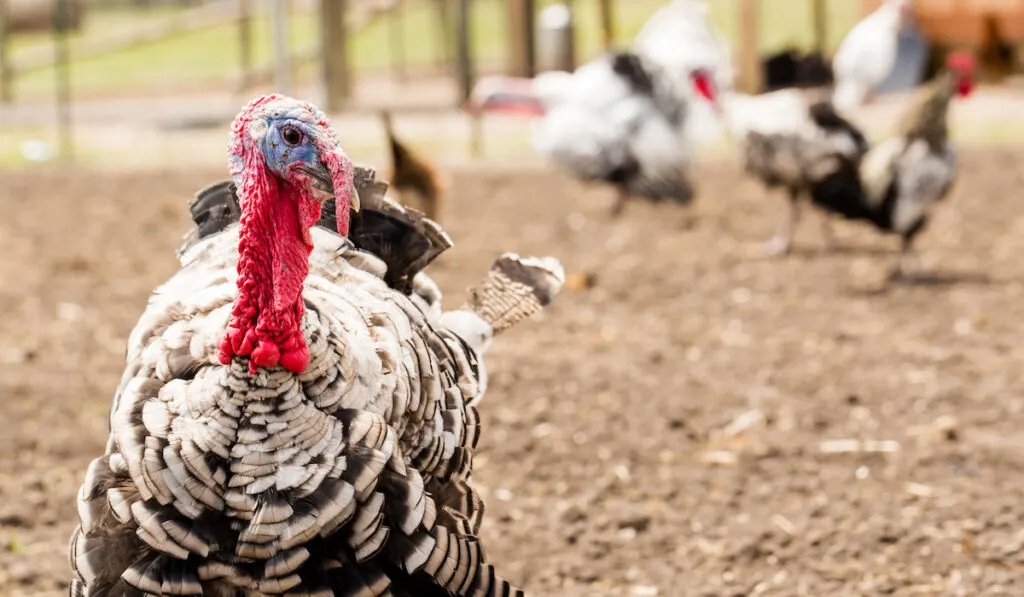
Table of Contents
How to Tell if Turkeys Are Hot
Turkeys will show signs of heat stress when they are too hot, just like us.
Some of the most common symptoms to look for include panting, lethargy, decreased appetite, increased water consumption, or even laying fewer eggs.
Your turkey could be too hot if it’s spreading its wings and fluffing up its feathers.
Another way to tell if your birds are too hot is by checking their body temperature.
Turkeys are warm-blooded, so their internal temperature is between 105°F and 107°F (40°C and 41°C).
If their temperature rises above that, it’s considered to be a sign of heat stress.
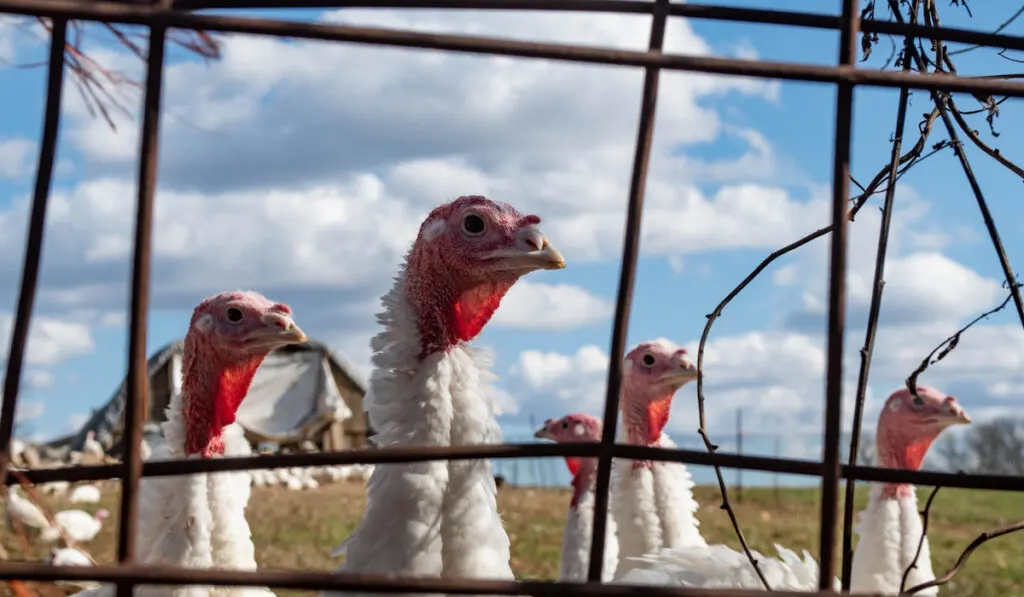
How Hot is Too Hot for Turkeys?
Turkeys are hardy birds and can tolerate a wide range of temperatures, but like all animals, they have their limits.
The ideal temperature range for turkeys is between 45°F and 70°F (4.4°C to 23.8°C).
So, they’re better able to endure cold temperatures than extreme heat.
Whether you check your turkey’s temperature or notice some of the signs we’ve mentioned above, it’s important to take action to cool the animal down as soon as possible.
Tips to Keep Turkeys Cool in Summer
Provide Shade
One of the most important things you can do to keep your turkeys cool in the summer is to provide them with shade.
You can do this by placing shade cloth over their coop or by planting trees or shrubs near the area where they live.
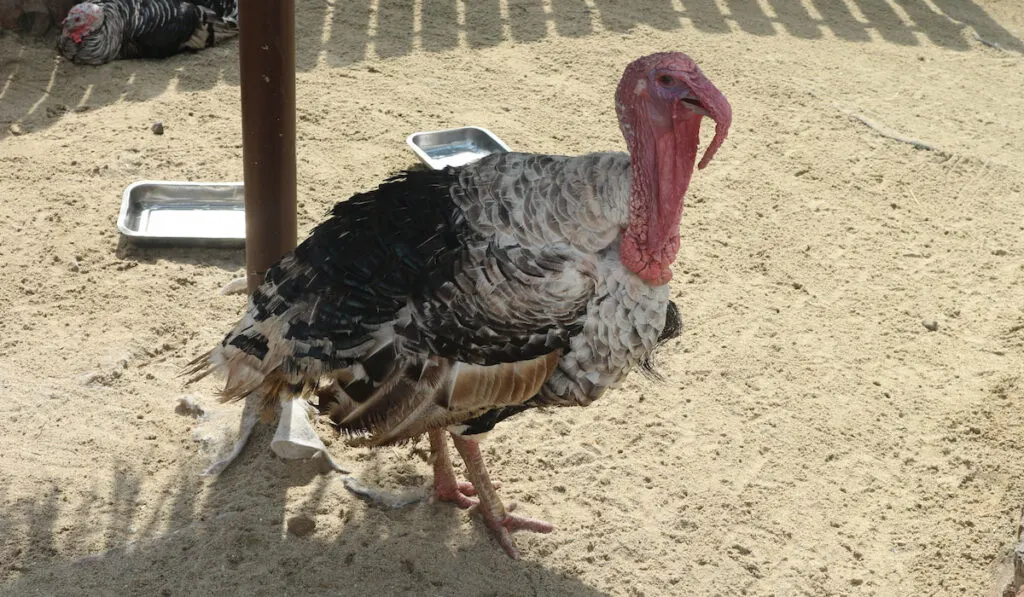
Provide Cool Water
Another important step in keeping your turkeys cool is to provide them with cool water.
You can add ice to their water or maybe install a water mister or sprinkler system.
Also, don’t let their water go stale.
When it’s hot outside, you may need to refill their water a few times during the day to keep it fresh and to help them stay hydrated.
Ventilation
Wherever you decide to keep your birds, make sure they have enough fresh air.
Air circulation and air exchange are the two key elements of ventilation.
Air exchange helps cool your turkeys and bring in fresh air. Plus, it helps remove substances that can be toxic for your turkeys.
Avoid Overcrowding
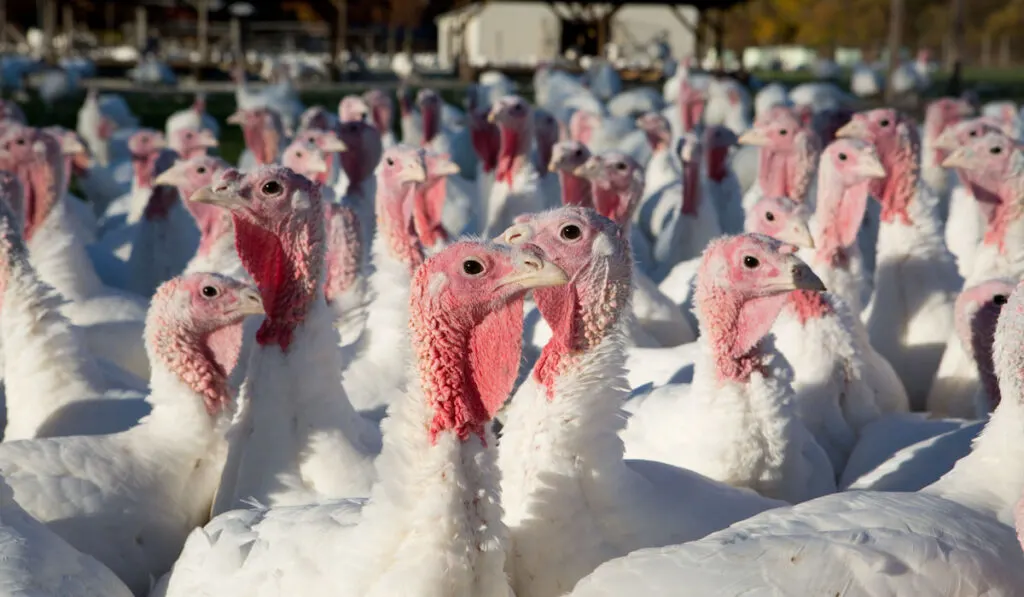
Try not to put too many turkeys in a coop or run.
We’re talking about fairly large birds that certainly require more space to move around and keep up with their daily activities.
Each bird requires a minimum of 25 square feet in an outdoor run.
Dust Bath
A dust bath is simply a place where turkeys and other farm animals go when they want to cool off by simply rolling in the dust. The temperature of their body drops when they’re in contact with cooler surfaces.
When the bird gets to the spot it chose for its dust bath and settles down, it starts digging into deeper layers of soil, where it’s cool and damp.
Regular dust baths keep a turkey’s feathers clean and keep parasites away.
Just make sure your animals have enough space to indulge in a dust bath; and if possible, all at the same time.
Provide Them With Frozen Snacks
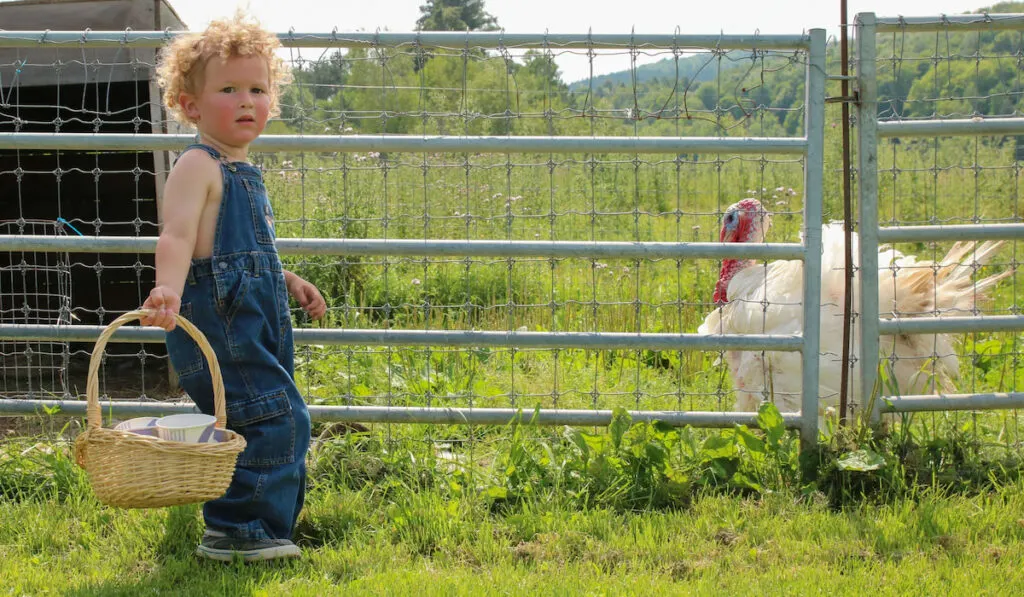
Serve your flock frozen goodies that are packed with valuable nutrients to keep them healthy.
I mean, we prefer to grab refreshing vegetables and fruits when the summer hits the hardest too, right? You can serve them treats they’d like such as herbs — either frozen or in their water.
Here are some of the frozen snacks they might especially enjoy:
- Parsley
- Kale
- Cucumbers
- Carrots
- Sweetcorn
- Peas
- Broccoli
- Basil
Feeding Time
It’s important your birds have enough quality food, but during summer, it’s even more crucial to choose the period of the day when you’ll feed them.
Give turkeys food during the cooler parts of the day, such as early morning or evening.
Keep Their Coop Clean
Wherever you place your turkeys, make sure their home remains as clean as possible.
Clean the coop on a regular basis to reduce the buildup of manure and other organic matter that can generate heat and make it hotter for the birds.
Also, monitor the temperature using a thermometer. That way, you’ll know when to take action and cool the space down.
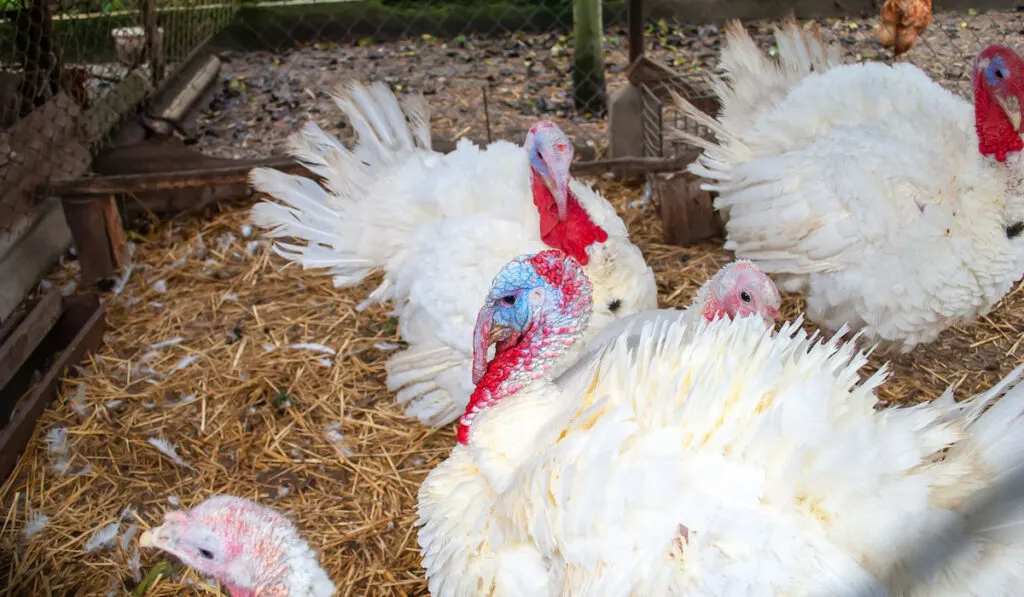
Some Final Words
In conclusion, keeping turkeys cool in the summer is essential for their health and well-being.
By understanding how to tell if your turkeys are too hot, what the ideal temperature range is for them, and how to keep them cool, you can ensure that your turkeys will stay healthy and productive during the hot summer months.
Providing shade, cool water, proper ventilation, frozen snacks, dust baths, and enough space are all effective ways to keep turkeys cool.
However, it is also important to regularly monitor the temperature and humidity levels inside the turkey house and take action as soon as you notice signs of heat stress.
This is much easier when you’re keeping their space clean — which is also something that prevents high temperatures.
By taking the necessary steps to keep your turkeys cool, you can ensure that they remain healthy and productive throughout the summer season.
